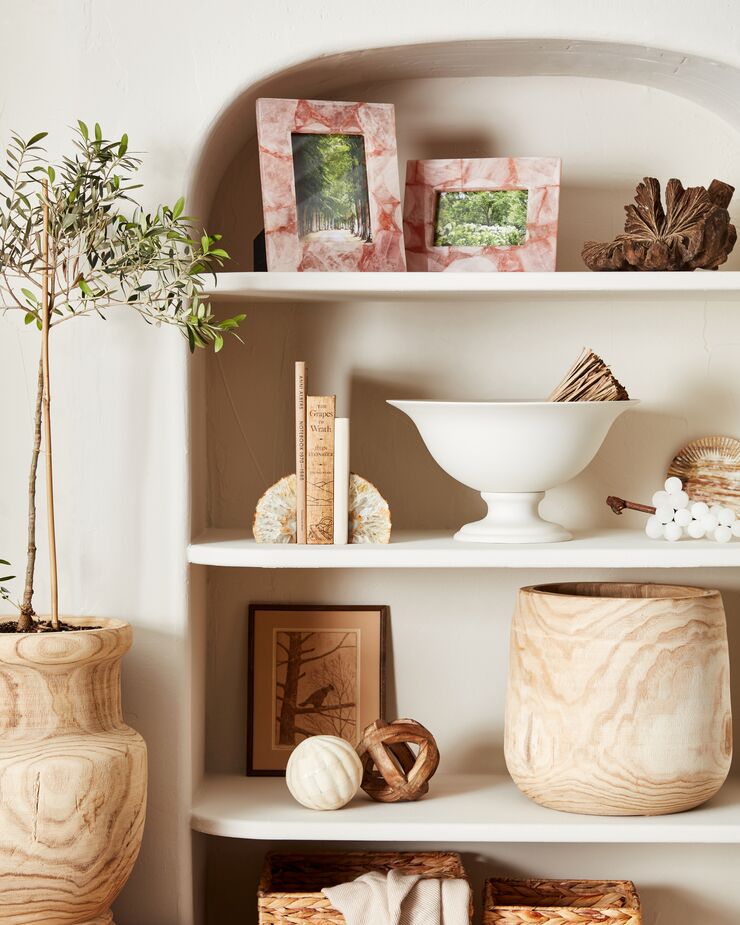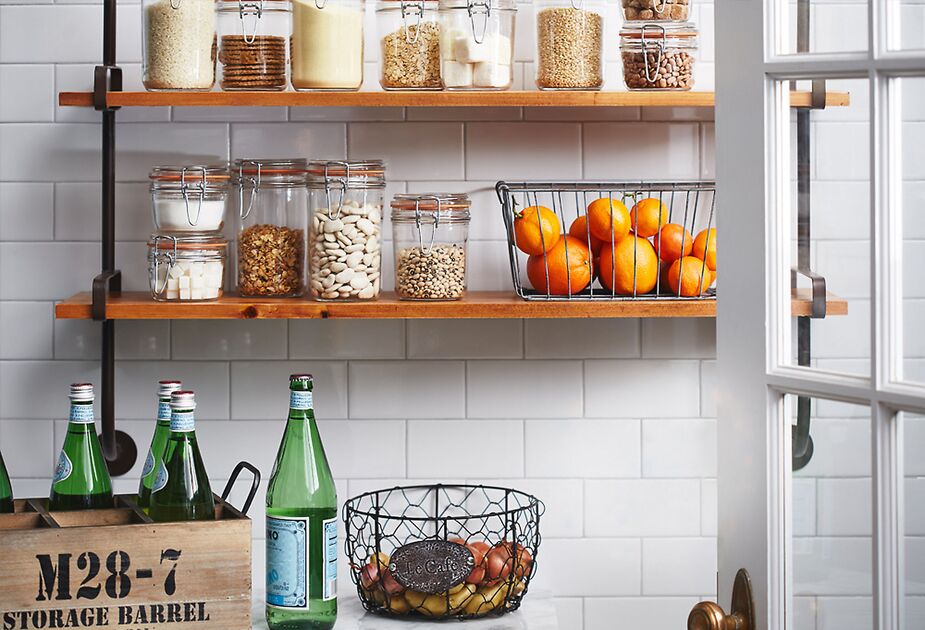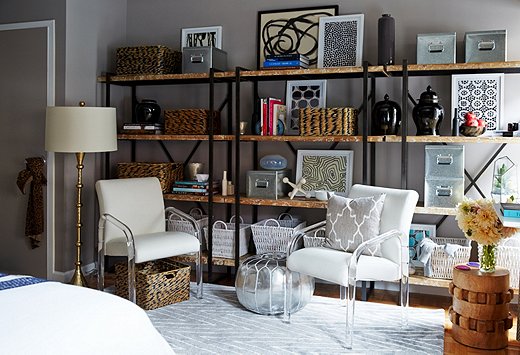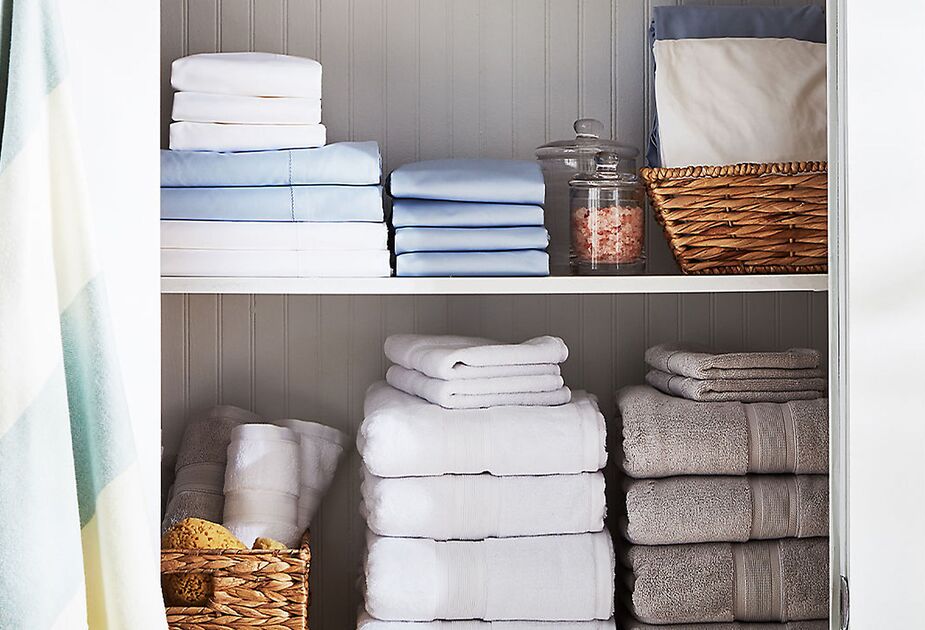Do you spend more time hunting for your pruning shears or sunglasses or dog shampoo than you do using it? Is your “junk drawer” more like a junk cabinet or even a junk room? If so, you’re not alone—and if you were, the likes of Marie Kondo would be out of a job.
“Organizing is not something you do; it’s the way you live your life,” says Pamela Thomas, a professional organizer and home stylist and the founder of Home Space Harmony. “It is not about simply cleaning up; it is about making mindful decisions every day about your life.”
To help us make those mindful decisions, Pamela shares seven rules she swears by for getting, and just as important, staying organized.
1) Make tidy a habit. Don’t just put something down when you’re done with it; put it away. “Start getting in the habit of doing things right away,” Pamela says. “The biggest creator of clutter is thinking you will put that item in its proper home some other time. Clutter often comes out of postponed decisions. Hang up your coat when you come in the door. Open your mail and sort immediately. Try to deal with the dishes right after you use them. Recognize the bad practices and replace them with better habits that will help you day to day.”
2) Put like with like. “One of the easiest ways to organize your space is to group similar items together,” Pamela says. “Designate a drawer, shelf, or basket for a category that could be chargers, gift cards, hair ties, or batteries. So many times I go into a home and find batteries stored in hallway closets, kitchen cabinets, and bathroom drawers. Trust me, grouping like with like cuts down your time searching for those items.”
3) Give every item in your house a home. Once you have grouped like items, designate a place for them. “An item is clutter if it does not occupy some specific location when not in use,” Pamela says. “For instance, everyone has a place in their home for silverware. If you found a random fork under your bed, you would know immediately where it belongs. Everything in your space should be this easy to put away. Don’t bring something in the house unless you know exactly where it will live. And make sure everyone else who lives with you knows it as well.”

If your first instinct upon seeing an airy alcove like this one is to use it as a dumping ground for keys and spare change, think again—unless you’ve dedicated one of those bowls as where you will place keys and spare change every time you return home. Find the wood bowl/vase here.

Stashing smaller items in attractive vessels “truly does inspire you to maintain your space,” Pamela says.
4) Let your space define how much you can own. “Decide how much space you want to allocate to a particular category, and then stick to it,” Pamela advises. “For instance, dedicate one shelf to storing your sweaters. When that shelf is full and you buy another sweater, something has to go. That means you will need to shop with intention. Think before you buy and ask yourself, Do I really need/want/love this and where will it live in my space?”
5) Bring order to daily routines. Be mindful of existing household patterns when creating solutions; this makes it easier for these changes to become habits. “Do your kids come in and take their shoes off by the door? Create a drop zone there. Put a small bowl by the front door for keys or in the summer a galvanized tub with sunscreen and bug spray near the porch door.”
6) Remember that when everything is precious, nothing is precious. Having too many items can prevent you from seeing and appreciating the beauty of each individual piece. “I see this most often with people’s collections or memorabilia, like their kids’ artwork,” Pamela says. Rest assured that discarding over time most of your children’s craft projects—after praising them lavishly, of course—doesn’t make you a bad parent.
7) Let go of perfectionism. “I love this quote by Salvador Dalí: ‘Have no fear of perfection—you’ll never reach it.’ Sometimes being good enough is perfect,” Pamela says. “Just clean out your spice drawer; you don’t have to alphabetize. Move forward and don’t get caught in the details.”

Baskets, bowls, and ginger jars prove just how stylish organization can be.
Shop canisters and jars >
Shop baskets and bins >
Shop boxes, trays, and catchalls >

Join the Discussion